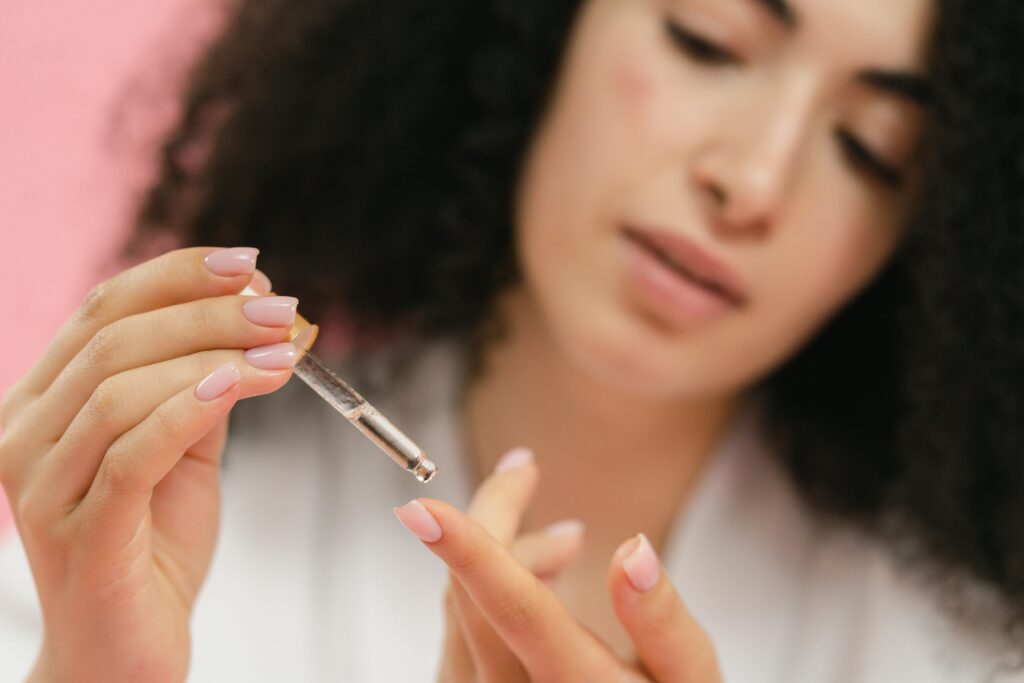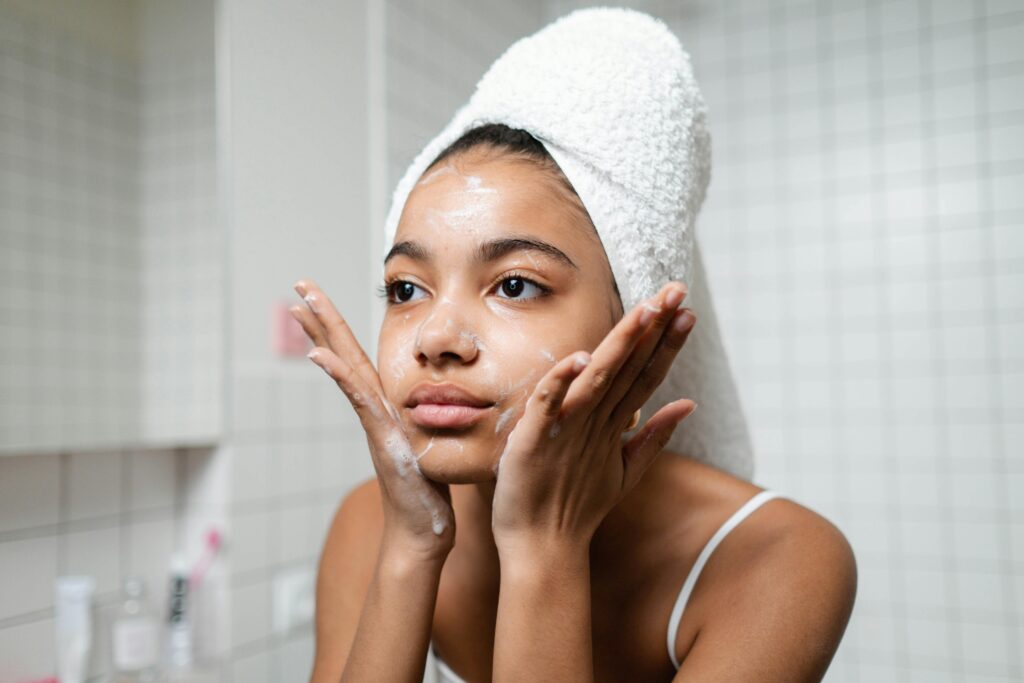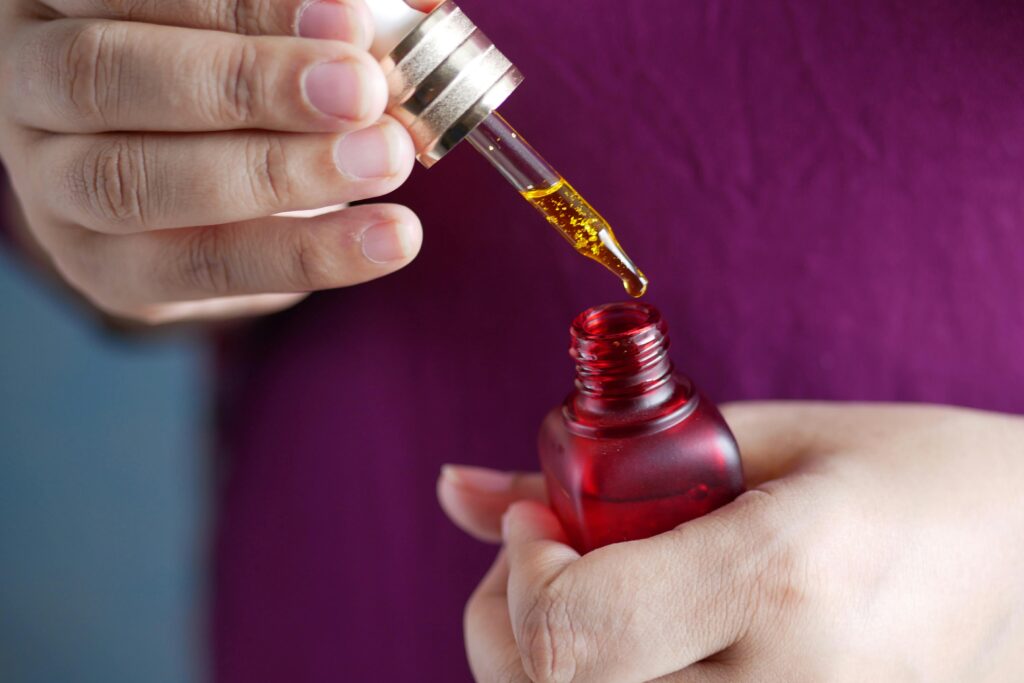If you’ve been exploring skincare options for acne, you might have stumbled upon the term “hyaluronic acid.” It’s a buzz-worthy ingredient praised for its ability to hydrate and plump the skin, but what does hyaluronic acid do for acne? Surprisingly, it’s more than just a moisture booster. Hyaluronic acid can help improve acne-prone skin in unique and effective ways.
Let’s break down how this ingredient works, why it’s good for acne-prone skin, and how to use it in your routine.
What Does Hyaluronic Acid Do for Acne-prone Skin?
Hyaluronic acid is often celebrated for its hydrating properties, but when it comes to acne, it offers several surprising benefits:
1. Balances Oil Production
The hydration from hyaluronic acid prevents your skin from feeling overly dry. When skin dries out, it often produces more oil to compensate, which can clog pores and worsen acne. By keeping the skin hydrated, hyaluronic acid helps balance oil production.
2. Soothes Irritated Skin
Acne often comes with redness, swelling, or irritation. Hyaluronic acid acts as a calming agent, reducing inflammation and helping the skin feel less irritated.
3. Supports Skin Healing
Acne can leave behind scars and blemishes that take time to fade. Hyaluronic acid aids in repairing damaged skin by boosting cell regeneration, which can improve the appearance of acne scars over time.
4. Works Well with Acne Treatments
Many acne-fighting products, like salicylic acid and benzoyl peroxide, can leave your skin dry and flaky. Hyaluronic acid restores moisture without interfering with these treatments, making it a perfect complementary product.
✨ Also read: What is the Best Skin Care for Fungal Acne? If you’re struggling with stubborn breakouts caused by fungal acne.
How Does Hyaluronic Acid Help Prevent Acne?
While hyaluronic acid doesn’t directly target acne-causing bacteria, it plays a key role in maintaining a healthy skin barrier. A hydrated skin barrier is better at defending against environmental stressors and irritants that can trigger breakouts. So, by strengthening your skin, hyaluronic acid helps reduce the chances of future breakouts.

How to Use Hyaluronic Acid for Acne
If you’re wondering how to incorporate hyaluronic acid into your routine, here’s a simple guide:
- Cleanse Your Skin
The first step is to wash your face with a gentle cleanser suited for acne-prone skin. - Apply to Damp Skin
Hyaluronic acid works best when your skin is slightly damp. After cleansing, pat your face dry but leave it a bit moist before applying your hyaluronic acid product. - Layer with Other Treatments
If you’re using acne treatments, apply them first, then follow up with a hyaluronic acid serum or moisturizer. This helps seal in hydration while allowing the treatment to work effectively. - Finish with Sunscreen
Sunscreen is a must, especially if you’re using acne treatments that make your skin sensitive to the sun.
What to Look for in Hyaluronic Acid Products
When choosing a hyaluronic acid product, focus on these features to ensure it works well for acne-prone skin:
- Non-Comedogenic: Products labeled non-comedogenic won’t clog your pores.
- Lightweight Formula: Opt for a gel or water-based formula to avoid heaviness.
- Fragrance-Free: Fragrances can irritate acne-prone skin, so stick to fragrance-free options.
- Multi-Molecular Hyaluronic Acid: Products with different sizes of hyaluronic acid molecules hydrate multiple layers of the skin.

Myths About Hyaluronic Acid and Acne
It’s easy to come across confusing information about skincare. Let’s clear up some common myths related to hyaluronic acid and acne:
- “Hyaluronic acid causes acne.”
This is false. Hyaluronic acid doesn’t clog pores or cause breakouts. Instead, it helps balance your skin and reduce irritation. - “It’s only for dry skin.”
While hyaluronic acid is great for dry skin, oily and acne-prone skin can benefit too. Hydration is essential for all skin types. - “It replaces acne treatments.”
Hyaluronic acid supports acne treatments but doesn’t replace them. Use it alongside acne-specific products for the best results.
Why Should You Add Hyaluronic Acid to Your Routine?
If you’re dealing with acne, adding hyaluronic acid to your skincare routine can help create a more balanced and hydrated environment for your skin. This makes it less likely for breakouts to occur and supports healing if you’re already dealing with active acne or scarring.
Hyaluronic acid is gentle, versatile, and works well with almost any product, making it a valuable addition to your routine.

FAQs
Does hyaluronic acid fade acne scars?
The hyaluronic acid itself doesn’t fade acne scars in the same way active ingredients like retinol or vitamin C do. However, it supports the skin’s natural healing process by keeping it hydrated and promoting regeneration, which can improve the overall appearance of scars over time.
What should you not mix with hyaluronic acid?
Hyaluronic acid is a versatile ingredient that pairs well with most products. However, avoid mixing it with very strong exfoliating acids (like AHAs and BHAs) at the same time to prevent irritation. Instead, layer them in your routine by using hyaluronic acid to soothe your skin after applying harsher treatments.
Which acid is best for acne?
Salicylic acid is one of the most effective ingredients for treating acne. It exfoliates inside the pores, removing excess oil and dead skin cells that can cause breakouts. Hyaluronic acid, while not directly treating acne, complements salicylic acid by hydrating and calming the skin.
Does hyaluronic acid darken skin?
No, hyaluronic acid does not darken the skin. It is a hydrating ingredient and does not interfere with your skin’s pigmentation. If your skin appears darker after using it, check for other ingredients in the product that might be causing this.
Can you use hyaluronic acid on hair?
Yes, you can! Hyaluronic acid can help hydrate your hair and scalp, reducing dryness and frizz. Many hair products now include this ingredient to improve moisture retention and promote healthier-looking hair.
✨ Also read: What Does Hyaluronic Acid do for Hair? to discover more benefits for your hair.
Conclusion
So, what does hyaluronic acid do for acne? It keeps your skin hydrated, reduces irritation, supports healing, and helps balance oil production—all without clogging pores. By adding this powerhouse ingredient to your skincare routine, you can give your acne-prone skin the hydration and care it deserves.
With regular use, hyaluronic acid can help you achieve healthier, happier skin. Give it a try, and watch how it transforms the way your skin looks and feels!
Note: Results from using hyaluronic acid can vary based on your skin type and unique needs. It’s always a good idea to consult a dermatologist or skincare professional to find the best approach for your acne and overall skin health.

